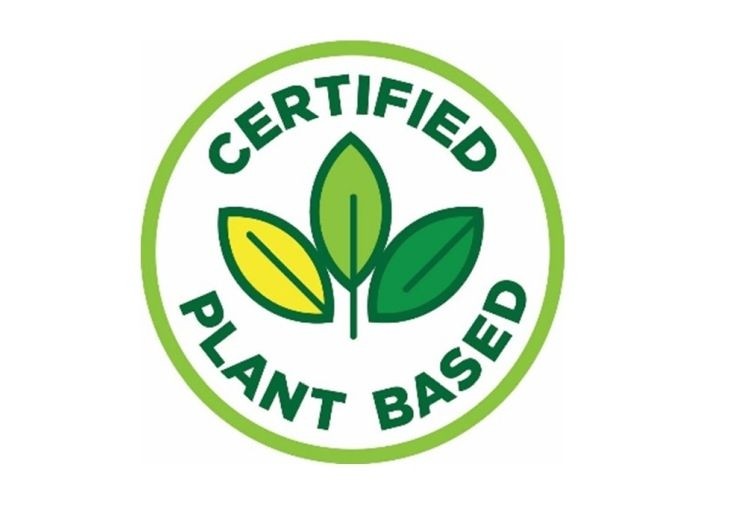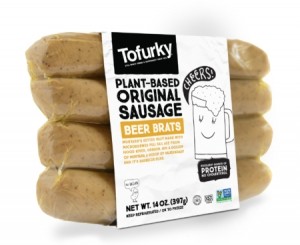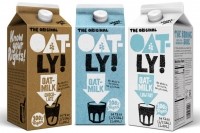‘Certified plant-based’ logo may have broader appeal than vegan stamp, says PBFA

Echoing recent research from Mattson - which found that consumers tend to see plant-based as a positive dietary choice, whereas following a vegan diet is seen as a lifestyle associated with serious commitment, deprivation, and allegiance to a ‘cause’ that defines them (animal rights, environmental activism) - the PBFA feels that a ‘plant-based’ logo will attract a wider audience.
“While Certified Plant Based provides the same animal-product free assurance as the vegan label, it reaches more consumers. In the US, 39% of consumers are trying to eat more plant-based foods [according to a 2017 Nielsen Homescan survey] while only 3% are vegan. Vegan is a specific lifestyle and label, while plant-based includes a wider breadth of people who practice Meatless Mondays or are flexitarian.”
Only plant-based foods that are intended to replace animal-based products such as meat, egg and dairy alternatives are eligible
To put it another way, PBFA executive director Michele Simon told FoodNavigator-USA, the vegan logo – which can be applied to any product from cookies to baked beans – reassures vegans that the foods in question don’t contain animal-derived ingredients. The plant-based logo (certified by NSF International) meanwhile, is more specifically designed to promote plant-based meat, egg and dairy replacements.
“We’re a mission-based organization whose mission is to support the plant based food industry in order to help consumers reduce their meat and dairy consumption, so we want the phrase [certified plant-based’] to be limited to categories of foods that are solving a problem, and not used on things [that are not really displacing meat and dairy] such as cereal, granola and bread.
“There is the vegan stamp, and some of our members do use it, but some don’t necessarily want to use it.”
She added: “There’s a need to define plant-based as the term is becoming more popular, and if there is anyone that’s going to do that, it should be the Plant Based Foods Association.”
“Plant-based food sales are growing rapidly. The best way for consumers to navigate the marketplace and make confident purchasing decisions is to look for independent certification of the plant-based claim.”
Steve Taormina, manager, NSF International’s Consumer Values Verified Program
Does the food industry need another certification scheme?
While a bright colored logo shouting out ‘plant-based’ on front of pack further reinforces that the products in question are meat- and dairy-free, Simon said the logo was not driven by litigation alleging consumers are confusing plant-based milks with their dairy-based counterparts.
“But now that we are in this fight it’s an additional tool in our toolbox to say plant-based has meaning and consumers can be sure that the product is animal-free.”
But does the food industry need another certification?
Simon explained: “There’s a crowded marketplace of seals out there already, but a number of our members said they wanted a plant-based stamp…and a few of them even asked if they could use our [PBFA] logo on their packaging, and I said no, because we can’t have that as an implied endorsement, but we had a lot of conversations and the demand was really there.”
Tofurky and Oatly first to participate
PBFA members Tofurky and Oatly are the first brands to participate in the new program, with several more in the pipeline, said Simon.
“Tofurky is a proud early adopter of the new Certified Plant Based seal. In partnership with the PBFA, we’re setting an expectation for a recognizable category trust-mark. This mark will provide consumers with confidence in purchasing 100% plant-based foods, for health and sustainability.”
Jaime Athos, CEO, Tofurky
What’s involved?
According to the certification scheme plant based food is defined as a finished product consisting of ingredients derived from plants that include vegetables, fruits, whole grains, nuts, seeds and/or legumes. Firms wishing to use the label work with NSF to provide the appropriate paperwork and pay an assessment fee, while the PBFA gets paid a licensing fee (which is waived for members).
Products eligible for certification are meat, egg and dairy alternative products that do not contain any animal-derived ingredients. The eligible categories include:
- Tofu and tempeh
- Meat alternatives to beef, pork, chicken, fish, etc.
- Milk alternatives such as cheese; yogurt; ice-cream, novelty and frozen desserts; butter; dips, dressings and sour cream; other beverages and creamers
- Egg substitutes and mayo
- Additional product categories, as deemed acceptable by the Plant Based Foods Association (PBFA), which owns the Certified Plant Based standard
Products excluded from this program include:
- Products that are inherently plant based such as single ingredient vegetables, nuts, etc.
- Products that contain any amount of animal-derived ingredient(s), including honey or casein
- Alcohol
- Tobacco products
- Dietary supplements
- Pet food
Ingredients not of plant or animal origin are allowed for use in a Certified Plant Based product as long as individually or combined they do not exceed 5% of the product formula (excluding water and salt). The following are ingredients approved under this section:
- Flavors and colors
- Leavening agents such as baking soda, potassium bicarbonate and sodium acid pyrophosphate
- Acids such as citric, ascorbic, lactic and malic
- Gums such as xanthan or gellan
- Vitamins and minerals such as in enriched wheat flours
- Mined minerals such as calcium carbonate and potassium chloride
- Microorganisms such as probiotics and yeast
- Enzymes
- Proteins produced by biotechnology
- Additional ingredients as approved by the PBFA
PBFA members also decided that process ingredients that may be of animal origin would not be covered by the standard, said Simon, noting for example that cane sugar can be filtered and decolorized with bone char from cattle bones, sometimes described as natural carbon, although the sugar itself does not actually contain bovine material.
Read the standard HERE.
US retail sales of plant-based foods rose 20% to $3.3bn in the year to June 16, 2018, according to Nielsen data compiled for the Plant Based Foods Association (PBFA), which represents 126 plant-based food companies.
Sales of plant-based ‘milk’ were up 9% to $1.6bn (whereas cow’s milk sales were down 6%) and now comprise 13% of total milk sales; sales of plant-based cheese were up 43% to $124m, plant-based yogurt sales were up 55% to $162m, plant-based meat sales were up 24% to $670m, and plant-based egg/mayo up 16% to $42m.


















